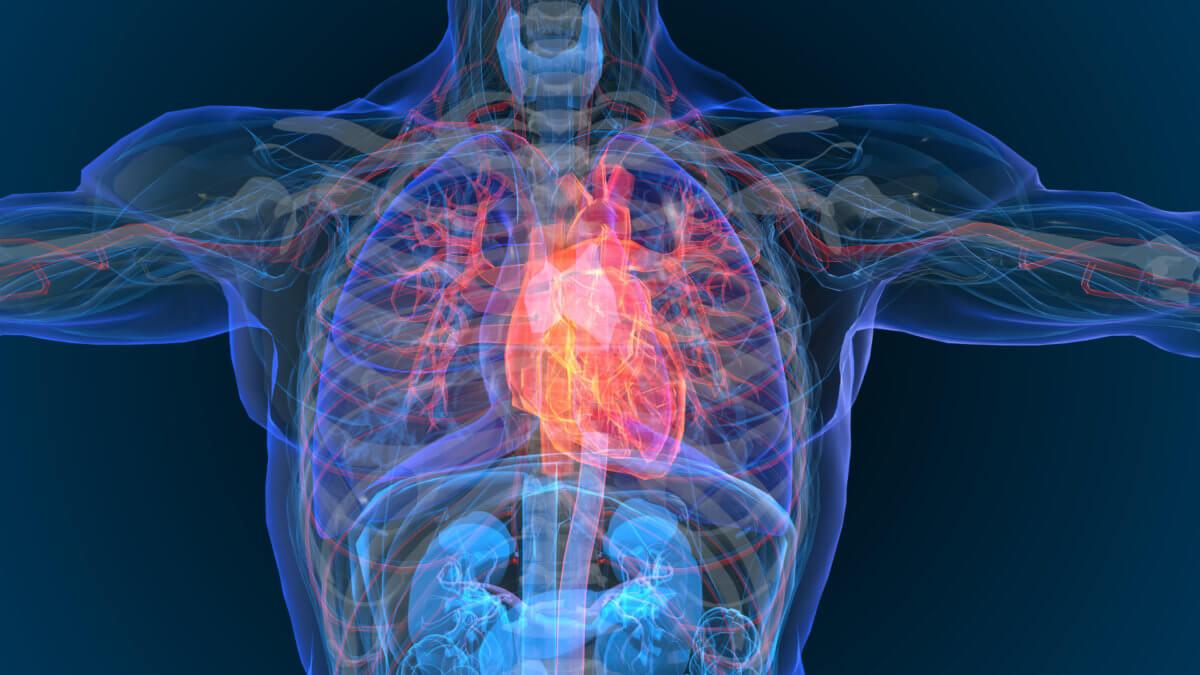PORTSMOUTH, United Kingdom — Studies continue to link COVID-19 infections to subsequent cardiovascular and health issues post-recovery, ranging from shortness of breath to myocarditis. Now, researchers from the University of Portsmouth suggest that even a mild case of COVID can be detrimental to heart health in the long-term.
This project is the first ever to compare both pre and post-COVID infection levels of arterial stiffness; a key marker linked to the aging and the functioning of our arteries. The lingering impact of a COVID-19 infection, often referred to as “long COVID,” is associated with increased risk of cardiovascular disease, dementia, and in extreme cases, death.
The international team of researchers behind these findings conducted this study using baseline measurements taken from a group of participants involved in an entirely separate study that began pre-pandemic, also investigating arterial stiffness. Among those diagnosed with mild COVID-19, artery and central cardiovascular function was still affected by the virus two to three months after infection.
Side-effects included stiffer and more dysfunctional arteries that may potentially lead to the development of cardiovascular disease. All in all, study authors believe this research has revealed that age and time from COVID-19 infection has an association with increased aging of the arteries.
“We were surprised to observe such a decline in vascular health, which deteriorated even further with time since COVID-19 infection. Usually, you’d expect inflammation to decrease with time after infection, and for all the physiological functions to go back to normal or a healthy level,” says Dr. Maria Perissiou from the University of Portsmouth’s School of Sport, Health & Exercise Science, in a media release.
“We can only speculate on what causes this phenomenon without further investigation, but emerging evidence suggests that it stems from COVID-19 triggering the auto-immune process that leads to vasculature deterioration.”

COVID-19 has already been extensively linked to a certain type of acute heart failure and vascular dysfunction, but the long-term consequences of the disease on vascular health are still vastly unexplored. This study was part of the University of Split’s NormPreven project, funded by the Croatian Science Foundation, with team formation facilitated by EU COST VascAgeNet action.
Researchers observed participants between October 2019 and April 2022 in the Laboratory for Vascular Aging at the University of Split School of Medicine. Most of the participants were young (under 40 years-old) and healthy. Just nine percent of the group displayed high blood pressure, and no one had high cholesterol. Two participants were diabetic, and four in five (78%) did not smoke.
“Given the number of people infected with COVID-19 worldwide, the fact that infection can have harmful effects on cardiovascular health in young people who had a mild form of the disease warrants close monitoring,” adds Professor Ana Jeroncic from the University of Split, who led the study. “The question remains as to whether this harmful effect is irreversible or permanent, and if not, for how long it lasts.”
“This study, while small, does support the prediction amongst vascular physiologists that we’ll have an increase in cardiovascular disease in the future as a result of COVID-19 infections. But we have to consider what other variables would have contributed to this increase,” Dr. Perissiou notes.
In conclusion, study authors say these results hold major implications for understanding the long-term cardiovascular consequences of COVID-19 infection and may even help inform prevention and management strategies for associated vascular disease.
The study is published in the Journal of Clinical Medicine.
You might also be interested in:
- COVID-19 vaccines may hold the key to curing heart disease
- COVID-19 linked to hard-to-find heart inflammation among college athletes
- Young adults with mild cases of COVID-19 may still end up with heart trouble later on


What I find so interesting is these “studies” never say whether people in the studies were vaccinated or not. Would make sense, right?
Well, wouldn’t it?
(Rhetorical)
My 77 year old wife had all her shots for Covid then tested positive and had an uncomfortable week with it. Took the doctor recommended provlaxid for 5 days, then tested negative. She still had breathing problems and was exhausted all the time. The doctor listened to her lungs and said they sounded normal, also did a chest x-ray and that looked “clear”. The next step was to see a cardiologist. Her appointment was for two months later. Within several weeks she died of cardiac arrest. I suggest seeing a cardiologist is TOP PRIORITY. Go wherever you must to get an early examination. Covid is DEADLY to your heart!